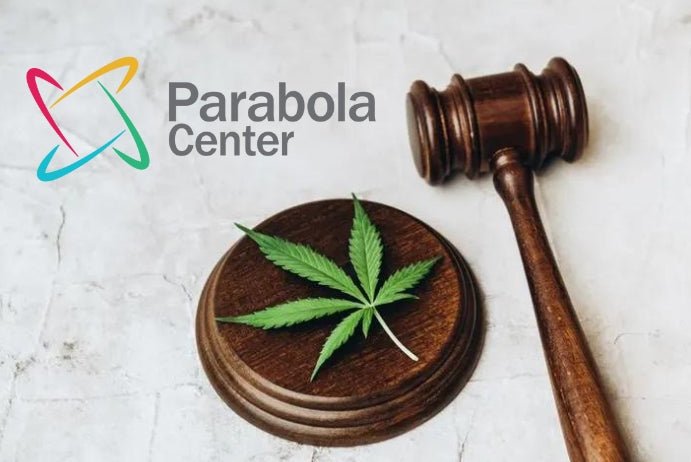Delays brought on by a search for the next Speaker of the House and a looming government shutdown could push approval of the vital spending measure to next year.

With a little under seventy days left in 2023, Congress is yet to approve the colossal and crucial Farm Bill scheduled for renewal this year. , The spending package, revised and passed every five years, includes funding for the SNAP (Food Stamps) program and other agricultural subsidies. Likewise, since the 2018 iteration legalized the cultivation, manufacture, sale, and consumption of hemp and hemp-derived products, the bill now addresses issues concerning hemp manufacturing and production as well.
Since the passage of the 2018 Farm Bill, the hemp industry has gone through a rollercoaster ride of financial and legal ups and downs. Prior to the COVID-19 outbreak and subsequent lockdowns, hemp manufacturers and retailers experienced a substantial economic boom period, particularly in the CBD market sector.
However, following the heady and lucrative days of 2019 and 2020, the hemp industry experienced an alarming decline in cultivation, manufacturing and retail sales. Much of that drop-off is due to the controversial and predominantly misunderstood low-dose THC derivatives produced from hemp, most notably delta-8 THC, delta-9 THC and delta-10 THC.
Delta-9 THC is the best-known and psychoactively potent cannabinoid derived from the hemp and cannabis plants (both comprise the cannabis sativa plant). It is the THC variant most people associate with the "high" achieved from consuming marijuana. However, the hemp plant produces over 80 cannabinoids, each with a varying degree of intoxicating punch.
Delta-8 and delta-10 THC occur naturally in hemp but in much smaller concentrations than delta-9. The low-dose product offerings, created in a concentrated form by chemically manipulating CBD produced from hemp flowers in a laboratory, are preferred by some consumers as an alternative to cannabis, which contains naturally higher levels of delta-9 THC.
However, one of the major problems arising from these newly legal product offerings concerns the lack of regulatory guidelines governing the safety and efficacy of hemp-derived cannabinoids like delta-8. While the 2018 Farm Bill did legalize hemp and its derivative products, it did little to provide regulatory guidance for agencies like the U.S. Food and Drug Administration (FDA).
Frustrated and beleaguered by demands from the hemp industry to approve CBD and other hemp-derived additives as food and dietary supplements, this past January, the regulatory agency sent a letter to Congress effectively washing its hands of establishing regulations for the hemp-derived cannabinoids.
In a statement, FDA Deputy Commissioner Janet Woodcock said, "A new regulatory pathway would benefit consumers by providing safeguards and oversight to manage and minimize risks related to CBD products."
"A new regulatory pathway would benefit consumers by providing safeguards and oversight to manage and minimize risks related to CBD products."
- FDA Deputy Commissioner Janet Woodcock
The agency said there needed to be more information about the safety of CBD products to properly regulate them as foods or supplements under the FDA's current structure. Likewise, the letter stipulated that Congressional leaders must determine if CBD and other hemp-derived cannabinoids are inherently legal before the agency can formulate a regulatory framework for establishing safety and compliance protocols.
As a result of the legal stalemate between the FDA and Congress on what to do with items like delta-8 and delta-9 THC, the lion's share of the responsibility has fallen to individual states. Cases involving underage minors becoming ill due to consuming edible gummies containing delta-8 THC, as well as a particularly tragic incident where a Virginia toddler died after ingesting similar items, prompted many states to take legal action.
Many industry advocates and stakeholders hoped lawmakers could use the 2023 update to adjust and correct the loopholes and legal vagaries left behind in the wake of the 2018 version. However, according to multiple news outlets, Congressional leaders might not be able to pass the 2023 Farm Bill until 2024.
Lawmakers were unable to approve the measure by their self-imposed end-of-September deadline. Consequently, they now face a much more rigid end-of-year deadline to pass the spending bill. Adding more stress and drama to the process, Congress has been bogged down for over a month while Republicans bicker and bargain over a new Speaker of the House of Representatives.
On Wednesday, they finally elected relatively unknown Louisiana Rep. Mike Johnson, which means lawmakers might actually return to doing some real legislative work soon. However, according to Arkansas Sen. John Boozman, the ranking Republican on the U.S. Senate Agriculture Committee, Johnson's selection might not give legislators sufficient time to approve a new Farm Bill before the end of the year.
In addition, before Congress can do anything, lawmakers must pass a spending bill to avoid yet another looming government shutdown. Other pieces of business, like the Farm Bill, will have to wait.
On Friday, Boozman did indicate he would be open to considering a one-year extension on passing the bill, adding he doesn't envision it taking an entire year to get the much-anticipated measure passed.
"We want to get the farm bill done as soon as possible, hopefully before the end of the year. That doesn't preclude us from getting it done. But it gives us that time. And it gives the farmers the certainty that they will have a farm bill in place," Boozman said.
"We want to get the farm bill done as soon as possible, hopefully before the end of the year. That doesn't preclude us from getting it done. But it gives us that time. And it gives the farmers the certainty that they will have a farm bill in place."
- U.S. Senator John Boozman (R-Arkansas)
In the meantime, farmers, manufacturers and retailers in the hemp industry will have to continue to play the gut-wrenching waiting game as lawmakers continue to overcomplicate and slow down the incredibly essential legislative agenda millions of Americans rely upon for their livelihoods. Hopefully, a miracle occurs, and the Farm Bill passes before Dec. 31.
However, with the process most likely pushing into next year, it will be paramount that Congress make the spending measure a top priority for the beginning of the 2024 legislative session.








































